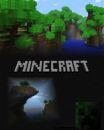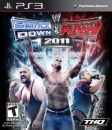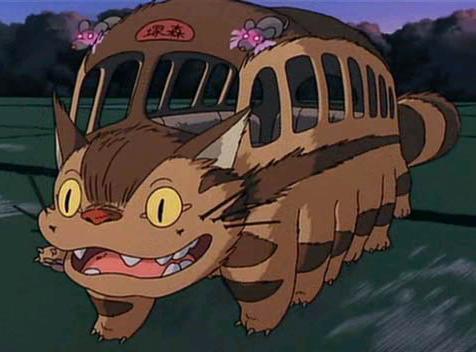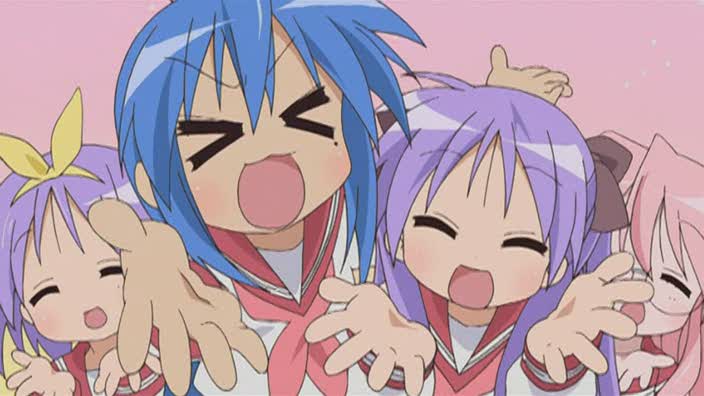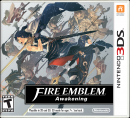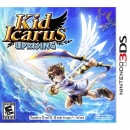Dodece said:
@tarheel91
I think you are misunderstanding the meaning of intellectually stimulating. Solving any problem no matter how large, or how small is by default intellectually stimulating. Playing a game of catch with a ball is intellectually stimulating. There is no value based upon the difficulty of the task. Your simply using your mind to solve a problem. Doesn't matter if how trivial the task happens to be.
Once again your playing the wrong games. There are a great many games that are built around story, and developers have found a way to convey stories well through aspects of a game. There is a reason that Mass Effect the game is going on to be Mass Effect the Movie. Lost Odyssey incorporates a collection of short stories. The list goes on and on. You need to widen your horizons.
Speaking to art well that is entirely subjective being that beauty, or meaning for that matter is in the eye of the beholder. That said the art in this game doesn't appear to be any more or less meaningful then the art in other games. Honestly I do appreciate animation, but while it can be visually stunning is it really art with a message. Does every tree that is drawn contain a message. Beyond a attention to detail.
By the way I have watched most of the films from Ghibli, and frankly yeah misery can be sweet. The analogy was in reference to the potency not the disposition. That said a movie can both be incredibly moving, and also be very stimulating. For instance Forest Gump was a sugar sweet movie, and it did so through the good things, and the bad things. Why did it win a lot of awards, because even as it was potent it was also thought provoking. That just isn't the case with Ghibli films. They are fairly simple narratives.
By the way while we are on the subject of literary matters if you like Ghibli. You might want to look into some good mythological anthologies. I think that is something you might reall enjoy. I would suggest forgoing mediterranean mythologies first, and look into Native American Mythologies. Simple narratives do have a beauty.
|
Oh please, a game of catch is intellectually stimulating? Sure, if you combine obscure defintions of both intellect and stimulate. Really, intellectually stimulating carries a connotation of helping one's intellect to GROW and PROGRESS. The same old doesn't do anything for it. I've never seen intellect applied to such things as reflexes and such. It's because intellect is defined as the ability to reason and understand. That's why I mentioned things like challenging the way one thinks or changing one's outlook on the world.
Compare how stimulating a Faulkner book* is vs. the two games you mentioned. There's really no comparison. I've played a good bit of Mass Effect, and the story is average sci-fi crap. Even within its own genre, the Ender's Game/Shadow series stands leagues above Mass Effect. You're honestly going to tell me that The Lost Odyssey is on par with The Canterbury Tales or other comparable collections of short stories? I'm not even going to bother to get into how the primary way stories are told in video games are through cut scenes, which, at their heart, aren't games at all, but rather short films. Very few games like Half Life have tried to tell a story exclusively through a player-controlled world.
Please don't try to pull the whole "Art is subjective" BS. Yes, that's true in regards to our own personal enjoyment, but that's an impossible way to judge things and if it were truly the case we couldn't have discusions about anything. Regardless, my point was that I expect them to integrate the story into the game very well because they are very skilled storytellers (You can't seriously deny that, right?). One of the biggest issues with stories in games is that they can impede gameplay. I'm replaying SW: Battlefront on the XBox and the little cut scenes explaining each battle are really frustrating. I just wanna kill baddies and cap points. I think they'll do a very good job of making the story interesting, but not intrusive.
Again, if you're trying to say they're always full of emotion, that's different from emotional high (which carries a positive conotation). Word choice is the issue here. It's ironic that you argue that, as Roger Ebert made note of the exact opposite in his review of Grave of the Fireflies: "Japanese poets use "pillow words" that are halfway between pauses and punctuation, and the great director Yasujiro Ozu uses "pillow shots"--a detail from nature, say, to separate two scenes. "Grave of the Fireflies" uses them, too. Its visuals create a kind of poetry. There are moments of quick action, as when the bombs rain down and terrified people fill the streets, but this film doesn't exploit action; it meditates on its consequences."
By the way I really don't appreciate the patronizing last paragraph.
* In the unlikely case you're unaware, this is the guy who wrote stuff like The Sound and The Fury and As I Lay Dying; the former starts off with a portion told from the perspective of a mentally retarded individual, and the second portion is from a person in the process of having a mental breakdown and committing suicide.
@Lafiel: Because "story telling is to movies as gameplay is to games." There is no deeper layer in Ghibli movies, and there doesn't need to be. Subtle development, sure, but movies aren't some detective case where you need to guess what's REALLY going on. It's right there in front of you. Ghibli movies are great because the basic story can be enjoyed by all but, as I said, there's some really subtle stuff going on that those who wish to can appreciate (who does that sound like in the video game world!?!?!?).





























